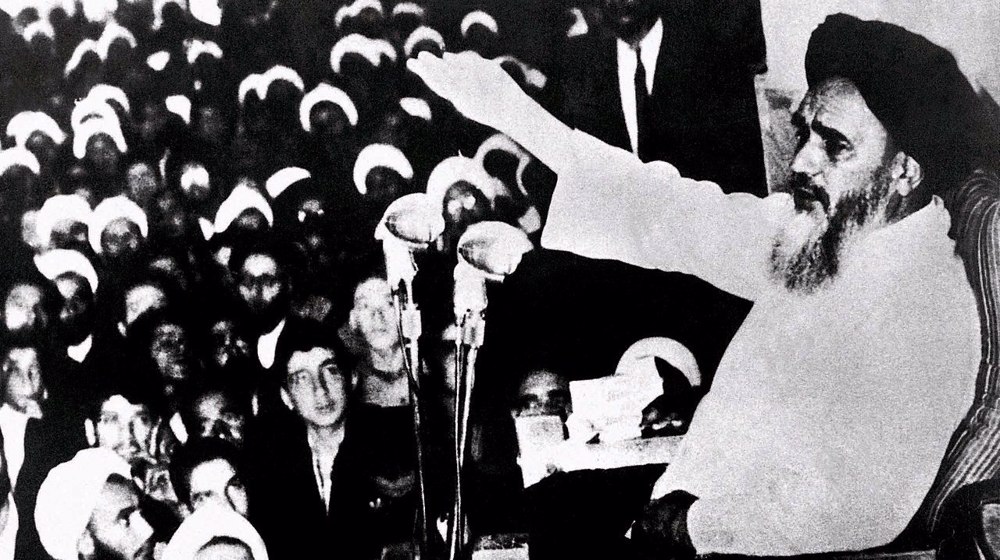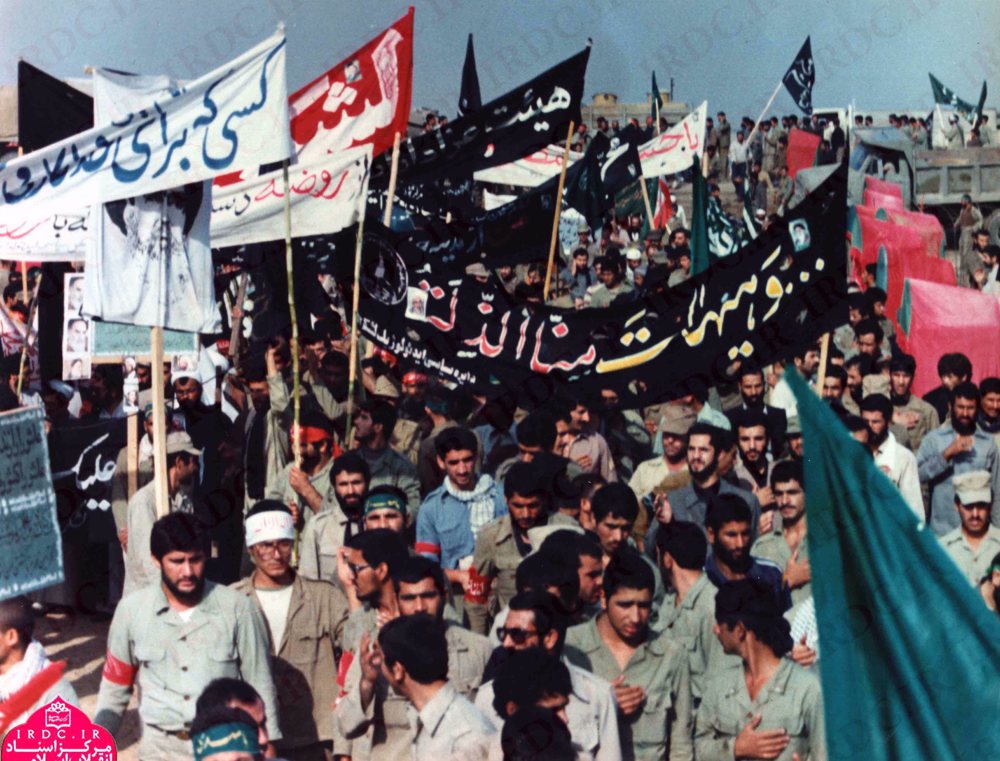By Alireza Hashemi
“Every day is Ashura and every land is Karbala.”

Imam Hussain's (AS) movement is a manifestation of political Islam, fighting against all odds to protect his grandfather’s religion and its values that were being destroyed by the Umayyad regime of the time.
Ashura was the fountainhead of Imam Khomeini’s revolutionary ideology and his popular call for fighting Taghut, a Quranic term denoting tyrannical powers on earth.
He was a key proponent of political Islam, as manifested in his guardianship of the jurist doctrine, which essentially says that in the absence of Prophet Mohammad (PBUH) and his rightful successors, the noblest Muslim must be entrusted with running the affairs of the Muslim community.
In his first recorded revolutionary message, dated 1945, the architect of the Islamic Revolution called on Muslims to stand up for divine values and launch an uprising against Taghut.
In that message, issued shortly after the ouster of West-backed ruler Reza Shah Pahlavi, he warned that the failure of Muslims to rise up has led them to be subjugated and exploited by colonizers.
The original birth date of the Islamic Revolution spearheaded by Imam Khomeini was Ashura.
On June 3, 1963, which coincided with Ashura that year, Imam Khomeini delivered a fiery sermon, in which he criticized Mohammad Reza Pahlavi and warned that Israel wants Iranian Muslims to perish.
Two days later, security forces arrested him overnight from his house in the central city of Qom and imprisoned him. The next morning, the regime launched a brutal crackdown on Muslim devotees who had taken to the streets in Tehran and several other cities, killing hundreds of them.
Caption: Ayatollah Khomeini delivers a speech on the occasion of Ashura in the Feyziyeh Seminary in
Qom on June 3, 1963.

That day marked a watershed moment in Iran’s modern history.
Addressing a gathering of clerics in west Tehran on October 22, 1969, Imam Khomeini said children and youth must not consider Ashura as a mourning matter as Shias are not a “weeping nation.”
“They (the enemies of Islam) fear these mourning sessions for it is a cry in support of the oppressed. It is an outcry in opposition to the tyrants. These organized bands of mourners march in protest to cruelty and injustice, their demonstrations must go on,” he said in his thunderous speech.
“Be not fooled by these writers, these men who, by different names and ideologies try to take everything away from you. But they see that these Ashura mournings, these gatherings for lamentation, recitation of the miseries of the oppressed and voicing the crimes of the tyrant, place the people against the oppressors.”
Ashura in 1978 was another turning point when millions of mourners held anti-regime protests, the last nail in the coffin of the Pahlavi regime.
Imam Khomeini repeatedly pointed to the critical role that mourning ceremonies played in unifying people against the dictatorial Pahlavi regime, and described the revolution as a reflection of Ashura.
“These tears and Nohas (poetic elegies) have kept us alive. These tears have kept this school so far … and pushed this movement forward. If there was no master of martyrs [Imam Hussein], this movement could not go forward,” he said in a speech in 1979, a few months after the victory of the revolution.
Addressing a gathering of clerics on June 20, 1982, in Tehran, Imam said Westernized people call Shias the nation of tears, adding that these prayers, elegies, and mourning for Imam Hussain (AS) does one thing and that is “mobilizing a nation in favor of an Islamic objective.”
“People should not think we are a nation of weeping. We destroyed a 2,500-year-old power [Iran’s monarchial rule] with these weepings,” he asserted.
Following the overthrow of the US-backed regime, Ashura became a guiding principle for the new system founded by Imam as demonstrated by his slogan: ‘Neither West nor East, Islamic Republic’.
When Iraqi dictator Saddam Hussein launched a war on Iran, aided by the West, Ashura became the driving force for millions of Iranian voluntary fighters, and Imam Hussain’s (AS) famous saying ‘never to humiliation’ became the motto of Iranians fighting on the frontline.

Throughout the years, the memory of Imam Hussain (AS) and his heroism grew in popularity among the people, with Karbala school of thought increasingly becoming part of the Iranian identity.
In 2018, late anti-terror commander General Qassem Soleimani reacted to threats by then-US president Donald Trump, who had revived the US mantra that “all options are on the table” on Iran and repeatedly hinted at the possibility of an attack on Iran, in a way that displayed true Hussaini spirit.
"Let me tell you, Mr. Trump, the gambler… We are the nation of martyrdom. We are the nation of Imam Hussein. Ask around. We have endured many hardships. Come we are waiting for you. We are the real men on the scene for you. You know that a war will mean the loss of all your capabilities. You may start the war, but we will be the ones to determine its end,” said the great commander.
Four decades since the Islamic Revolution, Ashura ceremonies continue to unite people under the banner of revolution, and the Islamic Republic continues to stand firm against arrogant powers.

No comments:
Post a Comment